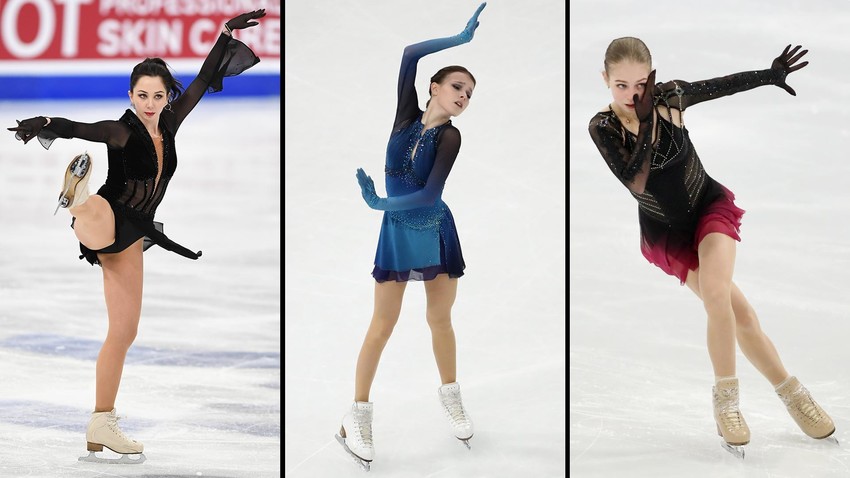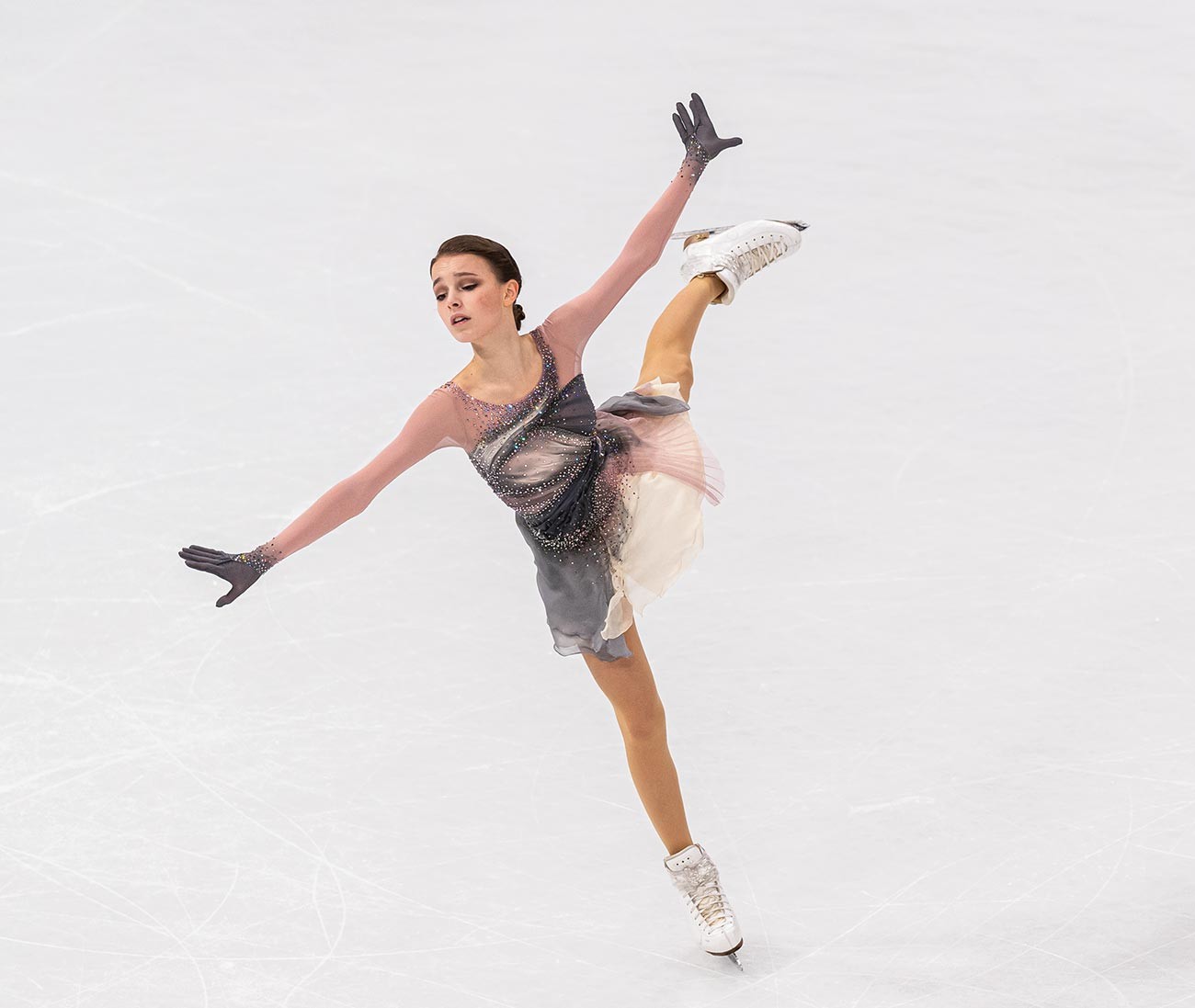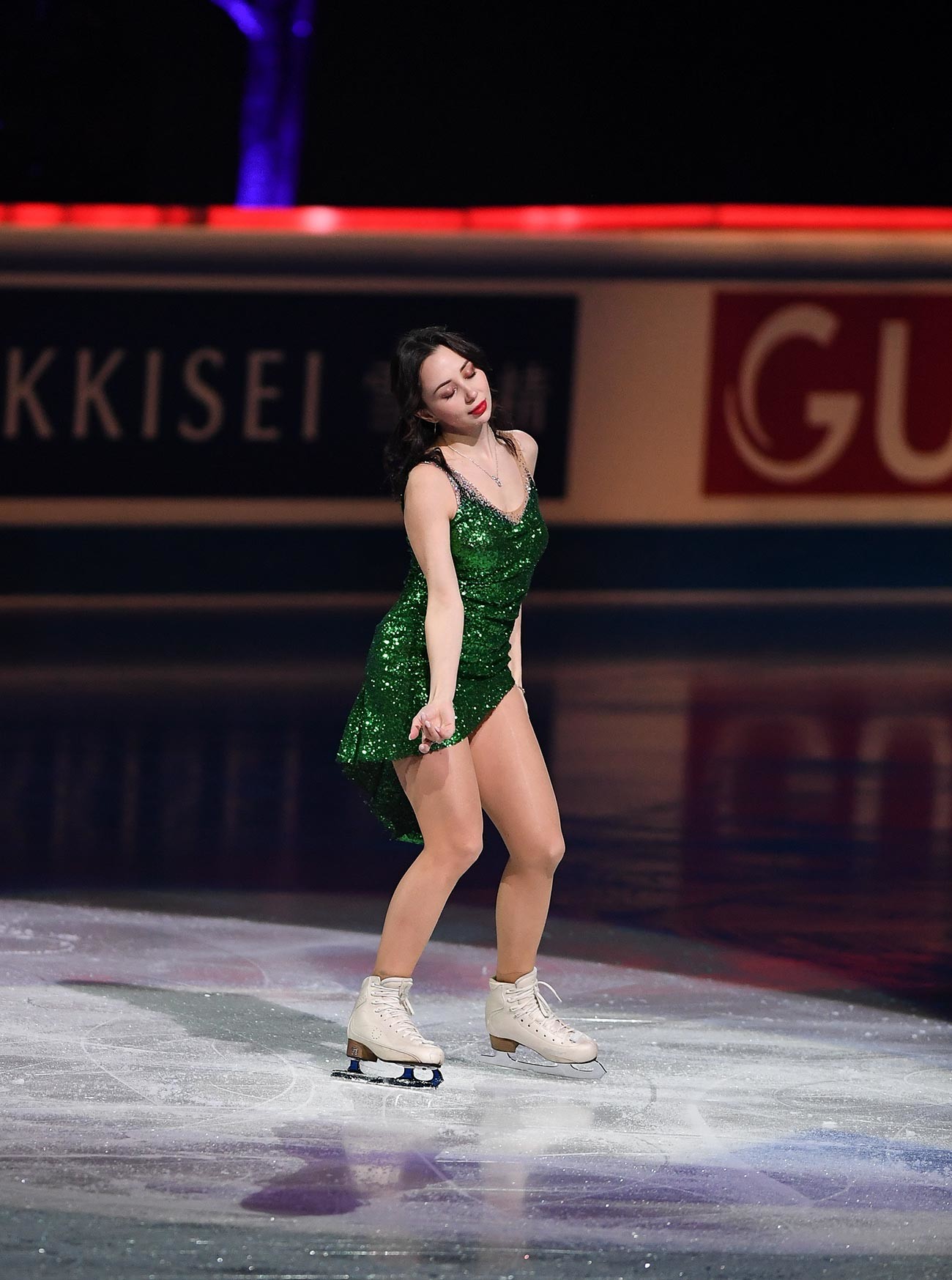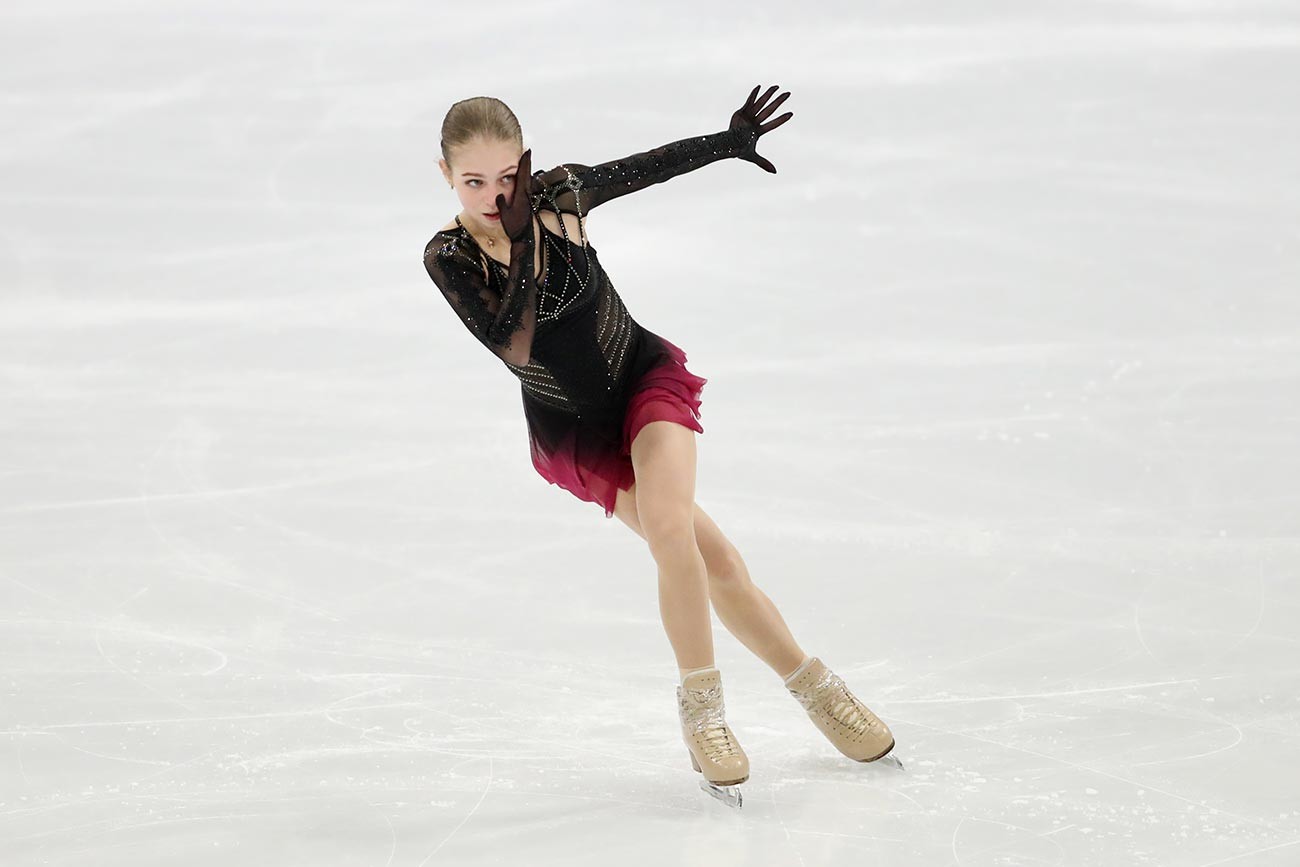
For 17-year-old Anna Shcherbakova, her debut at the 2021 World Figure Skating Championships - which mark the main start to the season - has been the most difficult sporting challenge of her life to date. At the end of December last year, she became Russian champion for a third time, thus qualifying for Stockholm, but she had to battle not only with the aftermath of the pandemic (irregular training sessions), but also her own health.

Anna Shcherbakova of Russia competes in Women's Free Skating during the ISU World Figure Skating Championships on March 26, 2021 in Stockholm
Joel Marklund/Keystone Press Agency/Global Look PressLast fall, Shcherbakova had very acute pneumonia and there were doubts as to whether she would be up to performing her program at all. She stayed off the ice for two months and trained exclusively at home, recording her workouts on camera and editing and posting them on Instagram. Her coaches and parents wanted her to withdraw from the short program at the recent championships, because she was breathing very heavily after her sessions, but Shcherbakova stood her ground and ended up performing the program stunningly.
“Really, I’ve never been forced to do anything by anyone. My parents used to say: ‘If you don’t like it, let’s stop now so you can go back to your studies, or do something else.” Of course, that was when I was younger - now, naturally, they realize that this is very important for me. There is no more talk of ‘let’s stop it’ at the first obstacle,” Shcherbakova said in an interview.
Shcherbakova took to the ice at the age of three and a half. Demonstrating exceptional results, she ended up being coached by Eteri Tutberidze. Shcherbakova then went on to win silver in the World Junior, European and Grand Prix Final championships.
This year, the young skater is taking her final exams at school, which only adds to her workload. But, she says that her teachers are accommodating and sending homework and school material by mail. In her free time, she manages to watch some TV shows (her favorite is Sherlock) or read something not part of her school curriculum. “Among the books I’ve enjoyed recently is Roadside Picnic by the Strugatsky brothers.” Sport and travelling to tournaments still take up most of her time. But that’s what Shcherbakova enjoys the most.
“I can’t imagine myself leading a normal life. Routinely going to school, coming back and doing homework every day and then the same all over again. I can’t see myself like that, I need to be on the move all the time,” she says.
Twenty-four-year old Tuktamysheva, a native of the town of Glazov in Udmurtia, spent six long years building up to the present championship: After she achieved her career triumph (World and European ladies’ Champion in 2015), she then missed out on two Olympic Games and World Championships and few believed the skater could stage a “great comeback”. There was talk that Tuktamysheva was past her peak.

A young Tuktamysheva had prevailed at Russian Championships at the end of the noughties, particularly in the ladies singles. She was labelled the child prodigy of figure skating, since she had come to the sport relatively late, at the age of nine, and by the time she was 12, she was already performing extremely difficult elements, having mastered the whole arsenal of triple jumps. It was thanks to these that she earned a reputation as the most “leaping” female figure skater.
“I trained in the old school. I started skating and winning in major league sports very early. This was 2009-2010, when there had been a decline in Russian ladies’ singles skating and you just needed to know how to jump. If you could jump, you would win. That’s the way it turned out ever since I was young. I jumped and won. It was normal. It was how the system worked,” she recounted.
In 2018-2019, she was arguably the most talked about figure skater in the world, after her bewitching performance in a flight attendant’s costume to the accompaniment of Britney Spears’ Toxic in the Grand Prix Series. Accusations that she had “crossed the line” rained down on Tuktamysheva then, to which she just retorted: “I’m just putting the sexiness back into figure skating.”
She made her big return at a Grand Prix event in Moscow in 2020, which significantly realigned the main contenders for the current season. She proved that her success was not accidental in the Russian Cup, after which she headed for Stockholm. “I have no idea,” she replied when asked how she managed to return to form over the span of so many years. “Every time [after yet another Olympics], I start from scratch, as it were. <...> When you don’t achieve anything for several years, you continue to live a normal, stable life and you have no sense of urgent ambition, because you don’t believe that you can really do it. But when you set your mind to it and start from scratch again, you believe you can achieve anything.”
At 16, Trusova was the youngest finalist. She took to the ice at the age of four and, in 2016, as a promising junior, she also ended up being coached by Eteri Tutberidze.
To date, she has managed to win silver and bronze in the most prestigious competitions, but Trusova is tipped for greater things - thanks to her extremely pure technique.

She is talked about as the main record-setter in Russian figure skating. Trusova was the first female figure skater in history to perform three quads in a single program. In terms of technique, she has already beaten all the adult champions. Recently, a video of her demonstration program was reposted by Hollywood actress Sharon Stone.
The young skater herself admits that only two things in life leave her exhilarated - skating and her dogs (Tina the chihuahua, Lana the poodle and Jack the husky). She has been managed by Evgeni Plushenko since 2020 - and lives in a cottage attached to his academy, so as not to waste time on travel.
She describes a typical day like this: “I wake up at roughly 7:30 am, have breakfast and go to the rink. First thing in the morning, it’s usually a warm-up, or general physical exercises, or choreography. Then it’s onto the ice. Then a small cool-down, after which I go home and have lunch and a bit of a rest. Then I go back to the rink. Once again, it’s either warm-ups, or general physical exercises, or dancing. Then it’s onto the ice again, followed by a cool-down. In the evening, I return home and almost every day, I have lessons with teachers over Skype. And sometimes, I go back to the rink at nine in the evening to practice glides.”
Trusova mainly has her eye on the Olympics now and says it is difficult to get her to show her emotions over failure: “I get upset over it [not winning], but I never show it, because people shouldn’t have to see it. They’ve come to see me cheerful and in good spirits.”
If using any of Russia Beyond's content, partly or in full, always provide an active hyperlink to the original material.
Subscribe
to our newsletter!
Get the week's best stories straight to your inbox